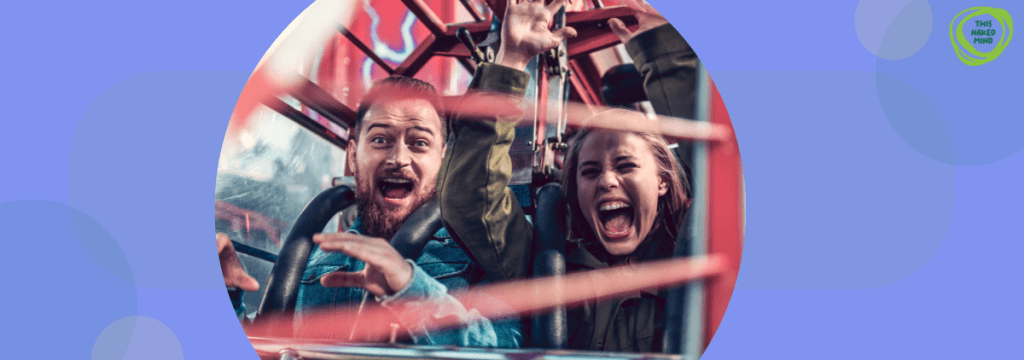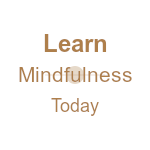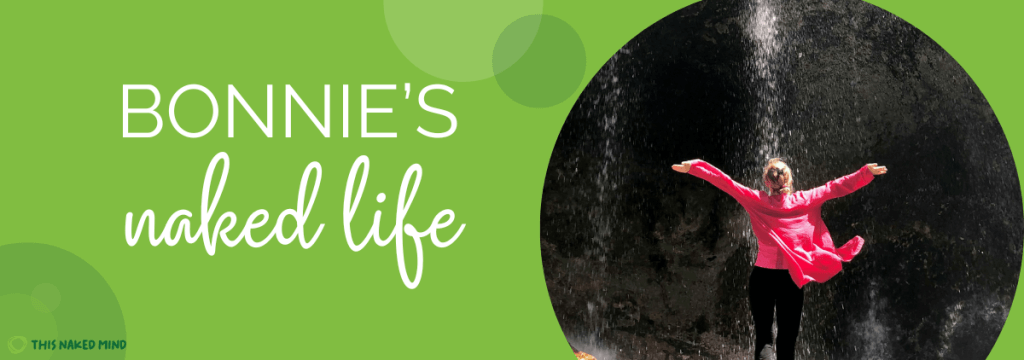
The Emotional Rollercoaster – Why You Feel Ups and Downs and How to Break the Cycle
Ever have one of those days where you’re laughing at a meme one minute and crying at a commercial the next? If you’ve been asking yourself, “why do I feel like an emotional rollercoaster,” trust me – you’re in good company. We’ve all been there. Riding those wild emotional waves that make us feel like we’re living in a constant state of “what the heck is wrong with me?”
One day you’re feeling great, crushing it at work, maybe even humming in the grocery store (yes, we all do it). Then boom – the next morning you wake up feeling like someone stole your emotional safety net while you were sleeping. You’re snapping at your partner over nothing, getting teary-eyed at that Sarah McLachlan pet shelter commercial, or feeling anxious about things that didn’t bother you yesterday. It’s exhausting, confusing, and honestly? It can make you feel like you’re losing your mind.
These emotional ups and downs aren’t just “part of getting older” or something you have to live with forever. There might actually be a surprising reason behind all this emotional chaos. Spoiler alert: it’s probably not what you think.

TLDR
Feeling emotionally all over the place is way more common than you’d think, and there’s actually a sneaky culprit that might be making things worse. We’re talking science, real solutions, and a simple experiment that could totally change how you feel day-to-day.
Your Guide to Why Do I Feel Like an Emotional Rollercoaster?
- Let’s Get Real About Emotional Chaos
- The Unexpected Culprit Behind Your Mood Swings
- What Science Actually Says About This Stuff
- Wait, Is This Really Happening to Me?
- How to Actually Break the Emotional Rollercoaster Cycle
- So What’s Next?
- You’ve Got This
Let’s Get Real About Emotional Chaos
If you’re sitting there wondering, “why do I feel like an emotional rollercoaster,” first off – you’re not broken, and you’re definitely not alone. Studies show that about 20% of adults deal with significant mood swings that mess with their daily lives. That comes out to one in five people walking around feeling like their emotions are running the show instead of the other way around.
Here’s the thing about emotional cycles – they’re actually pretty normal and happen to everyone. Your brain is constantly responding to different factors: stress levels, sleep quality, hormone fluctuations, blood sugar changes, and even the weather. Sometimes you wake up feeling great because you slept well and had a good breakfast. Other times, you might feel off because you’re stressed about work or didn’t get enough sleep.
But when these natural ups and downs become extreme or unpredictable, something else might be amplifying them. Maybe you’re riding high after a great night out with friends, feeling like you could conquer the world. Everything feels possible. You’re making plans left and right. Maybe even doing that deep clean on your fridge after the spilled grape juice incident (we see you, overachiever). But then, without warning, you crash. Hard. Suddenly, you’re questioning everything, feeling anxious about stuff that seemed fine yesterday, or just feeling… like Garfield on a Monday.

No Rhyme or Reason
The really frustrating part? These intense emotional swings often seem to have zero connection to what’s actually happening in your life. You could have the exact same day twice, but feel completely different about it depending on where you are in your emotional cycle. It’s like your feelings have their own agenda, and they forgot to send you the memo.
What makes this particularly tricky is that sometimes the highs feel so good that you don’t want to question them. Who wants to analyze why they’re feeling amazing, right? But those artificial highs can actually be masking what’s really going on underneath. And there might be a sneaky culprit making these natural emotional cycles way more intense than they need to be.
The Unexpected Culprit Behind Your Mood Swings
This next part might be eye-opening and brand new information for you. There’s one potential piece of this puzzle that most people never consider, and honestly, it might sound a little weird at first. Ready for it? It could be alcohol.
Before you roll your eyes and think “great, another person telling me I can’t have fun,” hear me out. This isn’t about being a Debbie Downer or suggesting that everyone who has a drink is doomed to a lifetime of emotional chaos. It’s more like…that commercial that reveals their laundry detergent was behind the skin irritation their daughter had been dealing with. Except in this case, imagine if someone told you that the thing you’ve been using to relax might actually be causing your stress in the first place. Wild, right?
Here’s the deal – alcohol is everywhere in our culture. It’s how we celebrate, how we unwind, how we socialize. It’s so normal that most of us never stop to think about how it might be affecting our day-to-day emotional state. We notice if we drink too much and feel terrible the next day, sure. But what about the subtle ways it might be messing with our mood even when we’re not obviously hungover?
The truth is, alcohol’s impact on our emotions isn’t always obvious or immediate. It’s not like eating too much spicy food where you immediately regret your life choices. Instead, alcohol works more like a sneaky little mood manipulator, creating these subtle ups and downs that can be really hard to connect back to what you drank yesterday or even a few days ago.
What Science Actually Says About This Stuff
There’s actually some pretty fascinating research about why alcohol might be contributing to your emotional rollercoaster situation.
When you drink, your brain gets a little party going with chemicals like dopamine and serotonin – basically your brain’s internal pep squad. This is why that first drink can make you feel relaxed and sociable, or why wine with dinner feels so nice. Your brain is literally getting a chemical high-five.
But here’s where it gets tricky. What goes up must come down, and your brain is no exception. Once the alcohol wears off, those feel-good chemicals don’t just return to normal – they actually drop below your baseline. It’s like your brain borrowed happiness from tomorrow to feel good today, and now tomorrow is here asking for it back with interest. That’s a steep price to pay for the 20-minute high you get from a drink.

A study published in Addiction Biology found that this chemical bounce-back effect can last way longer than you’d expect. We’re talking about mood impacts that can stick around for days, not just hours. Meanwhile, research published in the journal Sleep Advances shows that even moderate drinking can mess with your sleep patterns, and we all know how cranky and emotional we get when we’re not sleeping well.
But wait, there’s more (sorry, couldn’t resist). Scientists at the University of North Carolina discovered that alcohol can bump up your cortisol levels – that’s your stress hormone – for up to 24 hours after drinking. So you might be walking around feeling more anxious and emotionally reactive than usual, wondering why you’re so on edge about everything.
Wait, Is This Really Happening to Me?
So you might be reading this thinking, “Okay, but how do I know if this is actually my situation?”. Great question. The tricky thing about alcohol’s impact on mood is that it’s not always super obvious, especially if you’re not drinking heavily or getting visibly drunk.

Here are some signs that alcohol might be playing a role in your emotional rollercoaster: Do you find yourself feeling unusually anxious or down the day after drinking, even if you didn’t drink “that much”? Are your emotional reactions feeling more intense than they used to be, like you’re getting upset about things that wouldn’t normally bother you? Maybe you’ve noticed that you feel kind of emotionally flat or disconnected when you’re not drinking, but then feel temporary relief when you do have a drink?
Some people describe it as feeling like they’re on this weird emotional pendulum, swinging between artificial highs and deeper lows. And here’s the kicker – this can happen even if you’re just having a few drinks a week. You don’t need to be drinking every day or having blackout nights for alcohol to mess with your emotional regulation.
The thing is, if you’re drinking regularly (and by regularly, I mean like most adults – maybe wine with dinner a few times a week, drinks on the weekend, that kind of thing), your brain starts to get used to these chemical fluctuations. It’s like your emotional thermostat gets all confused and starts relying on alcohol to feel “normal.”
How to Actually Break the Emotional Rollercoaster Cycle
Here’s the good news – if alcohol is contributing to your emotional ups and downs, there’s actually something pretty simple you can do about it. And no, it’s not “never drink again and become a hermit.”
The most straightforward way to figure out if alcohol is messing with your mood is to take a break from it for a while. Think of it like a science experiment with yourself as the subject. You’re not making a life-changing decision or admitting you have a “problem” – you’re just gathering data about how your body and mind work.
A lot of people find that taking 30 days off from alcohol gives them enough time to see if there’s a connection. During this time, you might notice that your sleep gets better, your energy levels out, and your emotional responses start feeling more proportional to what’s actually happening in your life.
Now, I’m not gonna lie – the first week or two might feel a bit weird. Not because you’re “addicted” or anything dramatic, but because your brain is basically recalibrating. It’s like when you get new glasses and everything looks super sharp and bright at first. Your brain just needs time to adjust to functioning without those chemical ups and downs it’s gotten used to.
Some people report feeling more emotionally resilient during this time, like they can handle stress better without feeling like they’re on this constant emotional seesaw. Others notice they’re sleeping better, waking up feeling more refreshed, and generally feeling more… steady.
So What’s Next?
Look, figuring out why you feel like an emotional rollercoaster is actually pretty empowering. It means you’re not just stuck with these wild mood swings forever – there might be something concrete you can do about them.
If you’re curious about whether alcohol might be playing a role in your emotional chaos, check out The Alcohol Experiment. It’s a 30-day program that helps you explore what life might feel like without alcohol, but in a totally non-judgmental, supportive way. No one’s going to make you feel bad about your choices or pressure you to become a teetotaler. It’s just about gathering information and seeing how you feel.
The program gives you daily support, shares the science behind what’s happening in your body and brain, and provides practical tools to help you navigate this experiment. Plus, you’re not doing it alone – there are thousands of other people trying the same thing, which honestly makes it way easier and even enjoyable.
You’ve Got This
Remember, taking care of your emotional well-being isn’t about depriving yourself of fun or becoming some boring, joyless person. It’s about feeling more like yourself – steady, resilient, and in control of your responses to life’s inevitable ups and downs.
You deserve to feel emotionally stable and not like you’re constantly at the mercy of your moods. Whether alcohol turns out to be a factor or not, paying attention to what affects how you feel and being willing to experiment with changes is always worth it.
This 30-day break might be what takes you from asking why do I feel like an emotional rollercoaster to feeling in control and calm amid any chaos. The emotional rollercoaster doesn’t have to be your permanent ride. With a little curiosity, some support, and maybe a willingness to try something different, you can step off that wild ride and onto much steadier ground.
Ready to find out if alcohol might be behind your emotional ups and downs? Join thousands of others in The Alcohol Experiment – a free, 30-day program that helps you explore your relationship with alcohol without any judgment or pressure. Who knows? You might discover that steady, balanced emotions are closer than you think.
Copyright © 2025 This Naked Mind. This material is original content and is protected by international copyright laws. Unauthorized reproduction or distribution of this content will be met with legal action.


